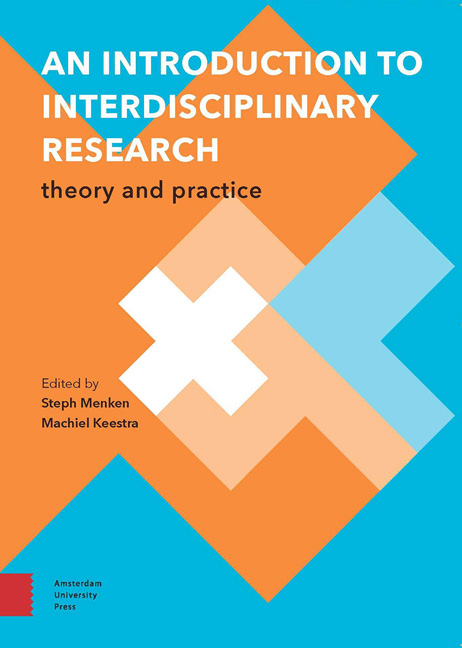Book contents
- Frontmatter
- Contents
- Acknowledgements
- Preface
- Part 1 The Handbook - ‘The What’
- 1 Introduction
- 2 What is Science? A Brief Philosophy of Science
- 3 The Disciplines
- 4 Interdisciplinarity
- 5 Complexity: The Main Driving Force Behind Interdisciplinarity
- 6 Interdisciplinary Integration
- Part 2 The Manual - ‘The How’
- 7 The Interdisciplinary Research Process
- 8 The Problem
- 9 Theoretical Framework and Research Question
- 10 How to Collect and Analyze your Data
- 11 Discussion and Conclusion(s)
- Part 3 Interdisciplinary Research in Practice
- 12 Interdisciplinary Research Example: Fogponics
- 13 Interdisciplinary Careers
- Further Reading
- References
- Colophon
1 - Introduction
- Frontmatter
- Contents
- Acknowledgements
- Preface
- Part 1 The Handbook - ‘The What’
- 1 Introduction
- 2 What is Science? A Brief Philosophy of Science
- 3 The Disciplines
- 4 Interdisciplinarity
- 5 Complexity: The Main Driving Force Behind Interdisciplinarity
- 6 Interdisciplinary Integration
- Part 2 The Manual - ‘The How’
- 7 The Interdisciplinary Research Process
- 8 The Problem
- 9 Theoretical Framework and Research Question
- 10 How to Collect and Analyze your Data
- 11 Discussion and Conclusion(s)
- Part 3 Interdisciplinary Research in Practice
- 12 Interdisciplinary Research Example: Fogponics
- 13 Interdisciplinary Careers
- Further Reading
- References
- Colophon
Summary
Half a century ago, philosopher of science Karl Popper (1963) famously observed: “We are not students of some subject matter, but students of problems. And problems may cut right across the boundaries of any subject matter or discipline.” This statement has become increasingly relevant. Today, many of the phenomena and problems that we are trying to understand and solve indeed ‘cut across’ the traditional boundaries of academic disciplines. Modern technological developments and globalization add to the complexity of problems and, in response, we are becoming increasingly aware that an integrated approach is necessary. Healthcare, climate change, food security, energy, financial markets, and quality of life are but a few examples of subjects that drive scientists to ‘cross borders’ and engage with experts from multiple fields to find solutions. In short, complex questions and problems necessitate an interdisciplinary approach to research.
Most real-life problems are multifaceted, in that they have multiple types of causes and determining factors. These different types of causes and determining factors often have to be addressed in different ways with different disciplinary methods. We know from research, for example, that alcohol intake is involved in over half of the violent acts that take place in the public domain. However, the relationship between the intake of alcohol and aggressive behavior is much more complex, and different disciplines have different perspectives on this relationship, as you can see in figure 1. Each discipline's focus is on another factor (in this case either nurture- of nature-related) at a different level of analysis, using different theoretical frameworks, and different methodologies.
Another example of a multifaceted problem is the financial crisis. Over the past five years, academics from different disciplines have tried to explain what caused the global economic recession. These disciplinary explanations, however, only shed light on part of the problem. When combined, they may offer a more comprehensive explanation, as you can see below in figure 2.
The previous examples illustrate that knowledge is, to a large extent, generated within separate disciplines (see also box 1). Consequently, in interdisciplinary research we need these disciplines to provide insights into different aspects of our research problem.
- Type
- Chapter
- Information
- An Introduction to Interdisciplinary ResearchTheory and Practice, pp. 13 - 16Publisher: Amsterdam University PressPrint publication year: 2016



